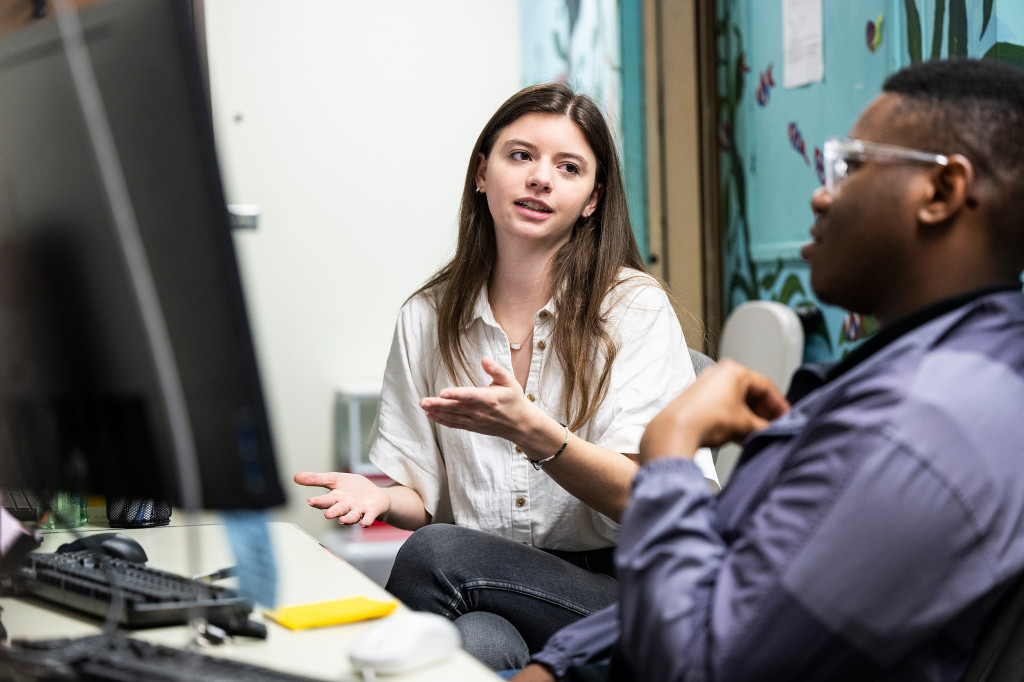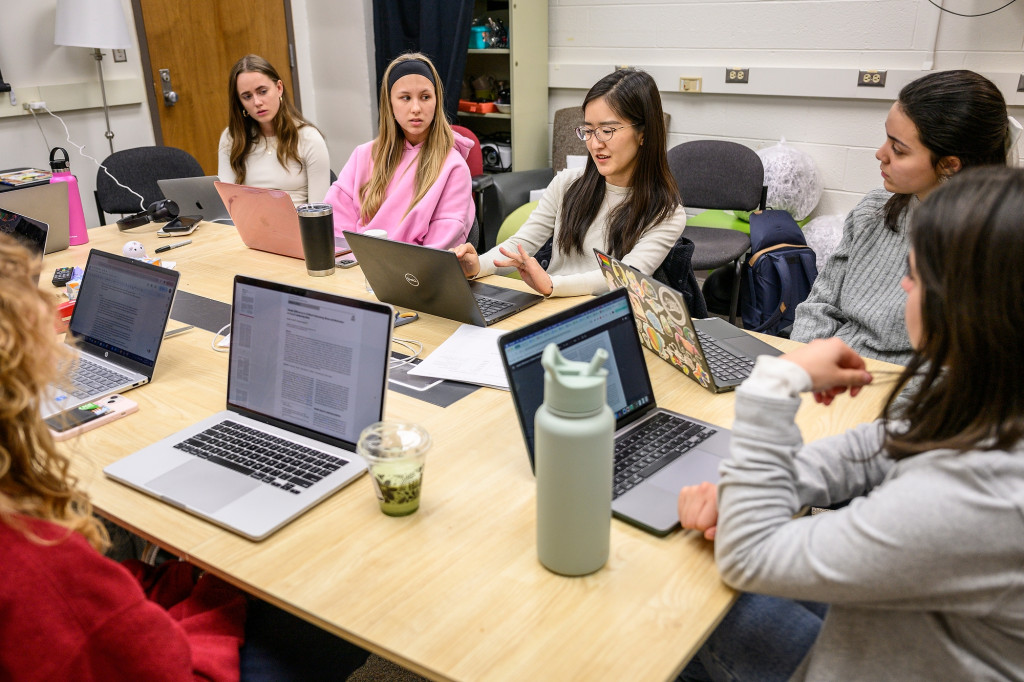Each spring the Office of the Provost recognizes outstanding mentors with the Awards for Mentoring Undergraduates in Research, Scholarly and Creative Activities. The nominations for this year’s recipients read like a textbook of great mentoring practices – meeting students where they’re at, getting to know them as scholars and individuals, and guiding their learning with just the right mix of challenge and support. Learn more about these awards – 2025 nominations will open this fall.
Ellie Breitfeld
Graduate student, psychology

Psychology graduate student Ellie Breitfeld interacts with undergraduate mentee Howard Owens as the two set up controls for a language learning study in the Waisman Center’s Infant Learning Lab. Photo: Jeff Miller
Breitfeld “approaches mentoring with both wisdom and humility, meeting students where they are, and figuring out how to curate learning experiences for them that will be maximally beneficial,” says her advisor, Jenny Safran. For student Howard Owens, that included coaching on how to prepare his first-ever research presentation. “Any time I hit a roadblock during my preparation, Ellie was available to help me,” he says. The talk succeeded beyond his expectations and opened up additional opportunities. “I really look up to her and aspire to be a researcher and mentor like her,” he says.
Eren Fukuda
Graduate student, psychology

Right of center, psychology graduate student Eren Fukuda discusses an article with undergraduate student mentees during a weekly group meeting in the Waisman Center’s Social Kids Lab. Fukuda studies how young children think about social categories such as race and gender. Photo: Althea Dotzour
Fukuda’s advisor, Kristin Shutts, describes her as a “fierce advocate” for the students she mentors, from the day they begin work in the Social Kids Lab through graduation and beyond. She includes her students in every aspect of the research, even when doing so requires more time. And she creates opportunities for additional learning, such as weekly meetings to discuss research articles. Outside the lab, her advocacy for fellow international students on the International Student Advisory Board made a powerful impression on one of her mentees, who says, “I still apply what I learned by observing Eren’s grace whenever I have to talk about difficult topics with others.”
Excerpted from original article available at news.wisc.edu.